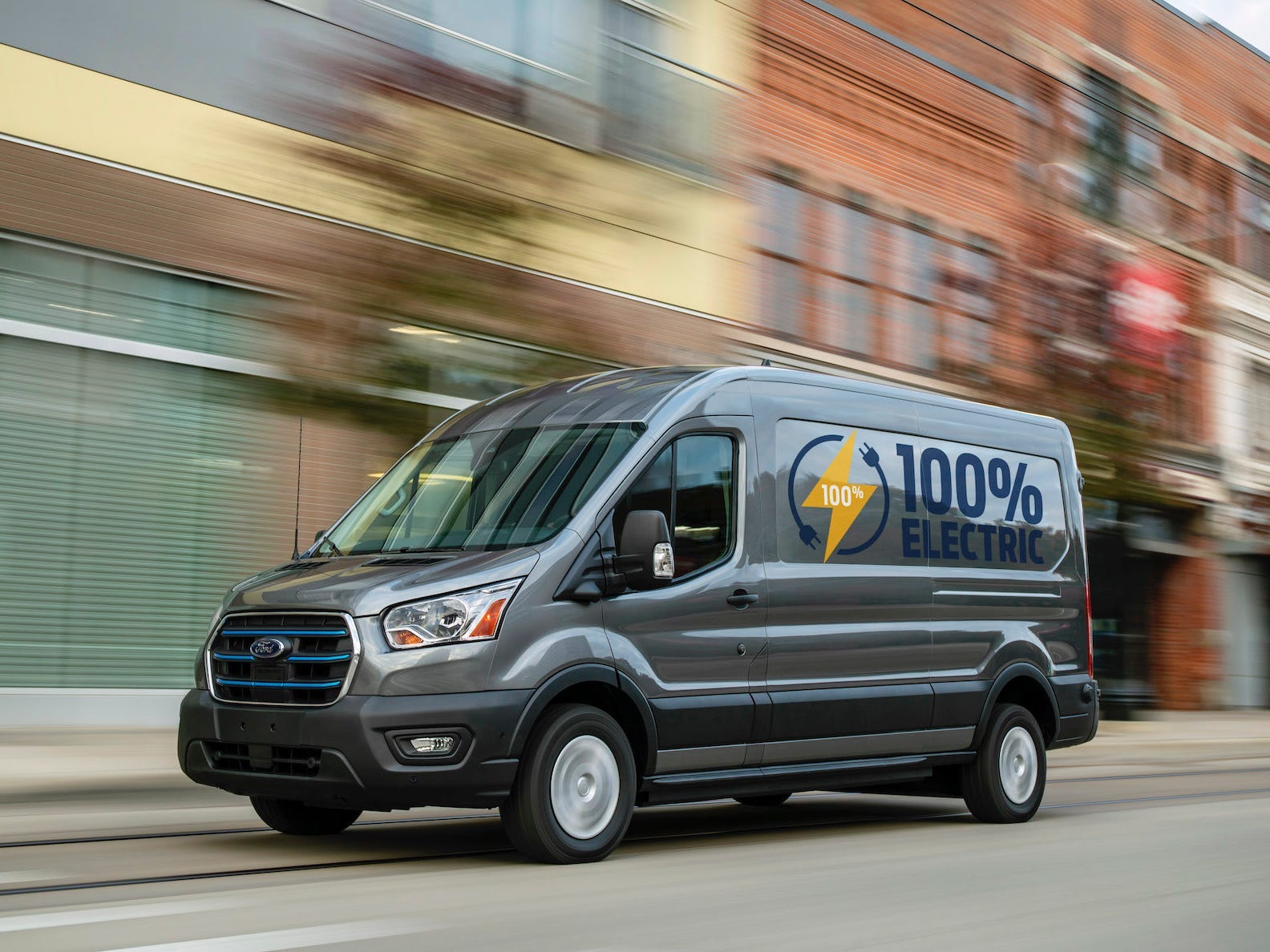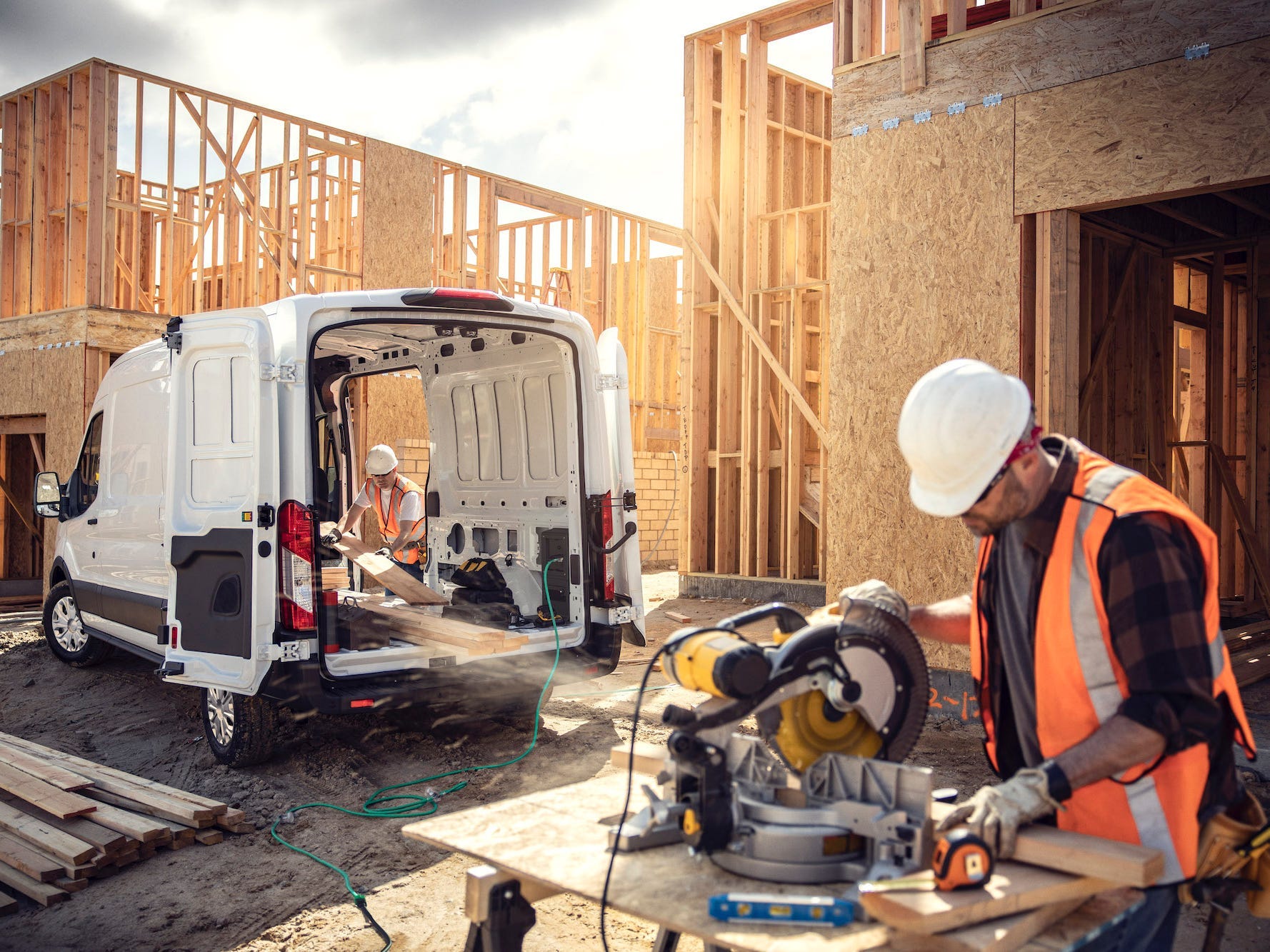
- Ford unveiled its all-electric E-Transit cargo van last year.
- Many kinds of businesses, including online delivery companies like Amazon, use cargo vans.
- Ford says the E-Transit helps the companies save money and access power while being sustainable.
- Visit Insider's Transforming Business homepage for more stories.
By transforming its cargo van, Ford strategically laid the path to the all-electric version of its bestselling F-150 pickup truck. The company's 2022 E-Transit van helped serve as a beta test for the public's acceptance of an electric Ford vehicle.
With the E-Transit, Ford figured out how to overcome skepticism and exceed enterprise buyers' expectations. The E-Transit's 24,000 reservations were a turning point for corporate adoption of electric vehicles, even before Ford rolled out the F-150 Lightning to rave reviews. Ford has raised its investment in its EV division to $30 billion.
The E-Transit's launch is another step in the US automaker's transition away from gas-powered vehicles. Henry Ford's mass-produced Model T essentially killed the first electric car; he offered much lower prices and greater availability with his assembly line. More than 100 years later, the company is applying that mainstream mindset to its EVs.
A common, essential enterprise vehicle
After nearly three decades at Ford, Darren Palmer, its general manager of EVs, knew the impact of its bestselling enterprise vehicle. "If we electrified that one," he told Insider, "it would make a big difference to a lot of people's lives and to the environment."
A variety of businesses, including those in home improvement, tourism, and logistics, use transit and cargo vans. Ford introduced its all-electric 2022 E-Transit last year. The first ones rolled off the assembly line on November 22.

The launch was quiet, especially compared with that of the F-150 Lightning. But it's already a success, Palmer said. "It quietly will become one of the leading electric vans in the in the world this year in North American and Europe," he said.
A strategic blueprint
Palmer, who's tasked with leading Ford's overall strategy and development of the company's EVs, said the E-Transit's launch required winning over existing customers. Companies increasingly have sustainability goals, but corporate buyers had questions about electric charging systems, battery repairs, and overall costs.
Businesses that use cargo vans — like contractors, automotive shops, and restaurants — can have low profit margins. And a report from the Fuels Institute found that the total ownership cost and the payback period were key factors for businesses considering EVs for their fleets.
But Ford's pitch focused on the costs of not switching to electric.
"We do not want you to get into a position that you regret," Palmer recalled telling the buyers. "If your competitor buys electric vans and you don't, in less than a year they will be able to undercut you so greatly that you won't even have a profit margin left in that business."
Ford said the E-Transit could enable buyers to offer lower prices and outperform their competitors. And it highlighted that its EVs were priced comparably with gas-powered vehicles after factoring in government incentives; the E-Transit started at under $45,000.
"All excuses have gone," Palmer said.
Desirable features beyond existing offerings
Palmer compares his work at Ford with a key moment in the technology industry. Flip phones were incredibly popular in 2006, but then Apple released the iPhone in early 2007. Smartphones offered new features, like a touchscreen, an internet browser, and GPS.
Ford positions its hybrid and all-electric vehicles as offering features that its gas-powered ones can't, like the ability to become mobile generators. Ford says the E-Transit has up to 2.4 kilowatts available to recharge tools. People have used hybrid F-150s to help save a wedding and provide power during the blackouts in Texas last winter.
"They powered their home, they powered everybody's laptops and phones and looked after their neighborhood," Palmer said.
Palmer said that while there would be future use cases for gas-powered and hybrid vehicles, his view is EVs like the ones from Ford are only going to get more popular.
Once vehicle owners transition to EVs, he said, "they will never look back."

